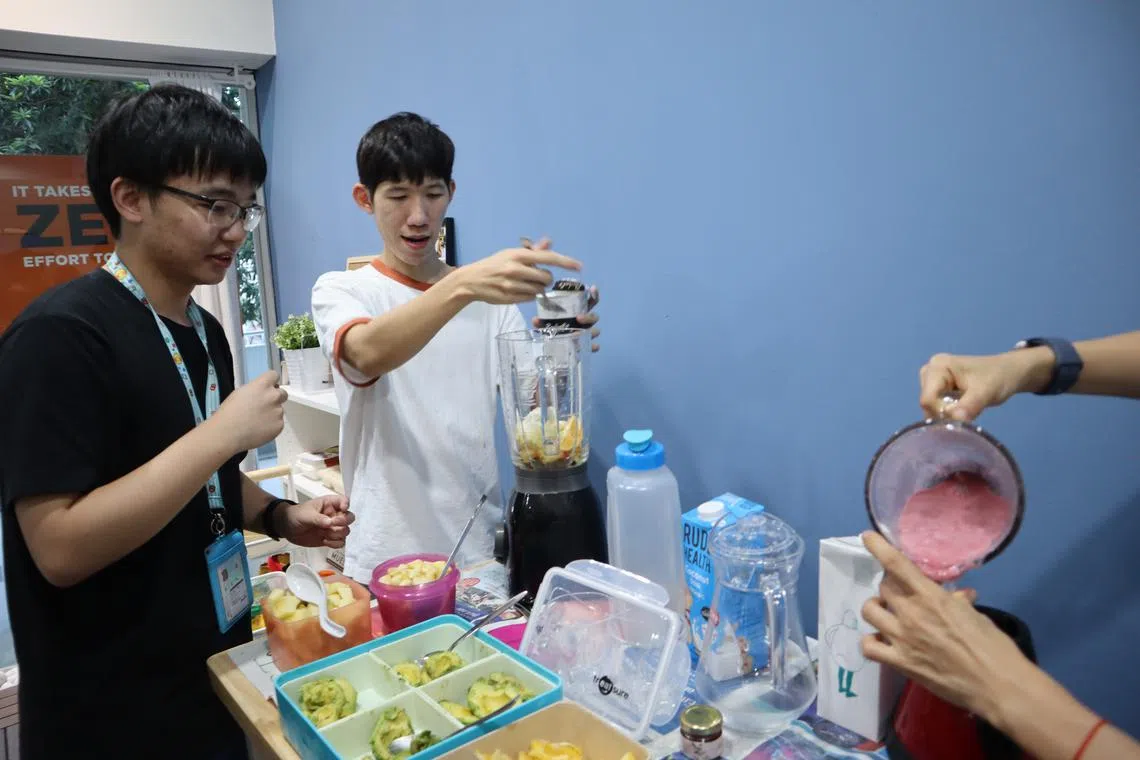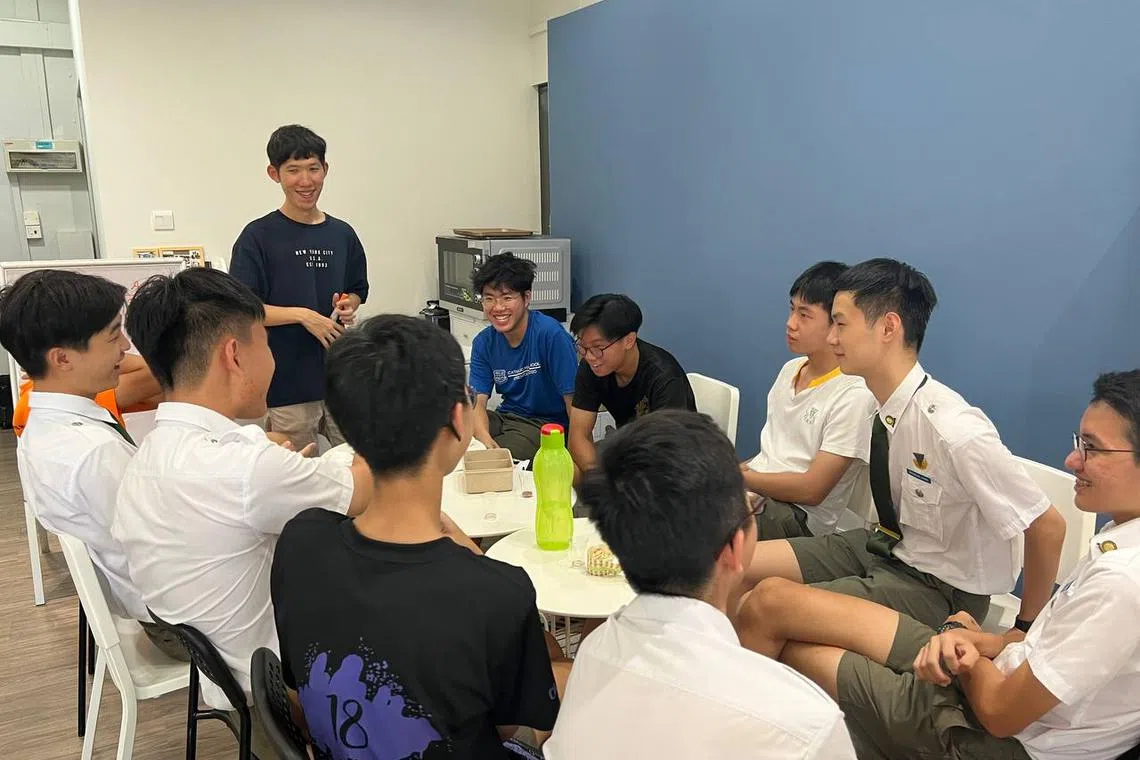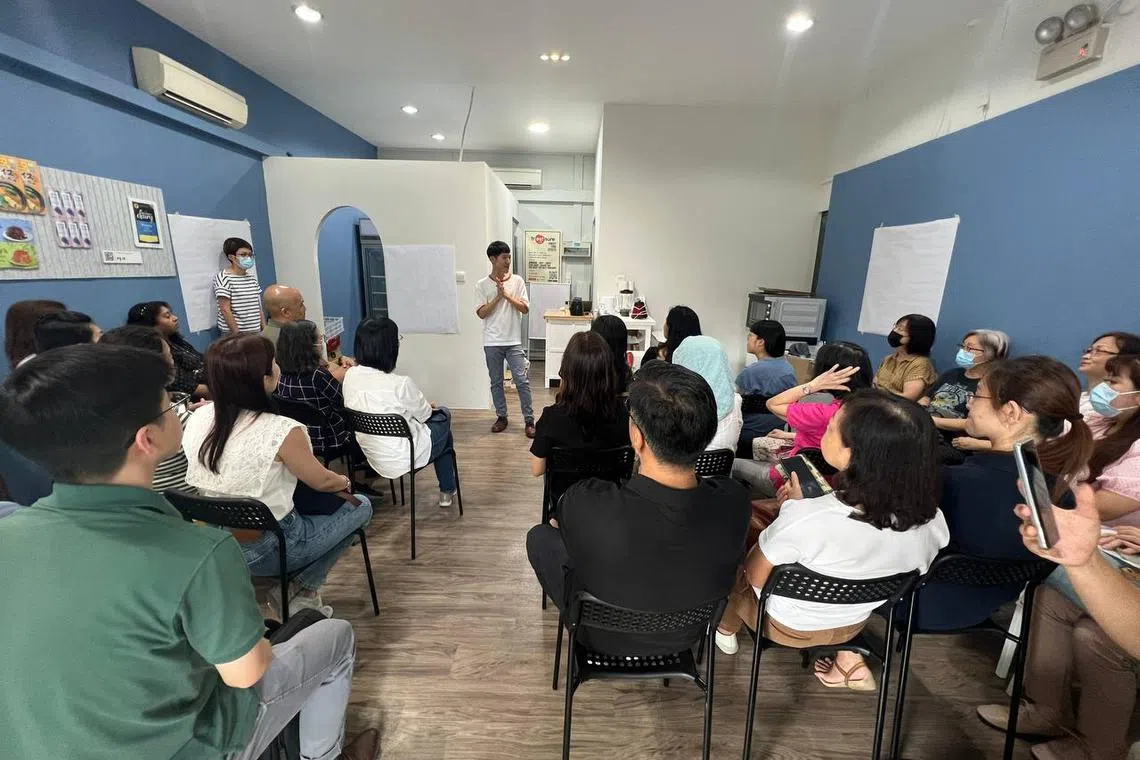Walking the talk with food waste
Preston Wong of treatsure talks about the need to close the gap between awareness and taking action
WHEN Preston Wong first started work on treatsure in 2016 – a mobile app to combat food waste – he was a final-year graduate law student at the National University of Singapore, and by his own admission “an outsider to the sustainability scene”.
Then, he and a fellow co-founder were singularly focused on tackling the problem of food waste, but less attuned to other aspects of environmental sustainability.
Six years on, Wong is back at university – but as an adjunct lecturer rather than student – with seven years of industry experience and broader perspectives on sustainability.
The startup he is CEO of, treatsure, has matured in tandem. By the company’s estimates, the platform has collectively saved 50 tonnes of food from waste and reached 80,000 users locally.
From its initial “buffet-in-a-box” concept that enabled users to pay for a box of excess food from hotel buffets, the app ventured into surplus grocery distribution, and now runs a concept store in the middle of the central business district that offers a range of sustainability experiences and education.
But at its core, little has changed, said Wong, now 34. “Our mission is still to get everyone to treat food as treasure.”
Navigate Asia in
a new global order
Get the insights delivered to your inbox.
With greater knowledge and experience, it has become pertinent to him to “walk the talk” and set the right tone and policies at treatsure.
For example, the buffet-in-a-box offering was previously served in a single-use disposable plastic bento box – the company now aims to reduce packaging waste on that front.
It now offers a reusable container for purchase, that customers can use across treatsure’s hotel partners to enjoy a small rebate on their meals.
Wong has also been in discussions with hotels to transit from single-use plastics to biodegradable boxes – this is not ideal, he said, but is still an improvement.
“What is now more pertinent to me as a leader, is to walk the talk to inspire other people to follow suit. And that involves setting the right tone and the right policies.”
Similarly, learning how inefficiently-planned delivery routes contribute significantly to higher emissions led treatsure to set up its concept store and develop a system of grocery pickups instead of deliveries. “These elements were not there at the start. They were put in place along the way, given my own shift in thinking on certain issues and deciding that we ought to embed sustainability into the various company policies as much as possible,” said Wong.
The problem remains a daunting one. The 813,000 tonnes of food waste generated in 2022 made up 12 per cent of total waste generated in Singapore, and the recycling rate has remained at 18 per cent.
For his work in reducing Singapore’s food waste and raising awareness on food sustainability issues, Wong has been named the winner of the Individual category at the Sustainability Impact Awards 2023.
Reducing food waste
And it has been hard work. In the initial stages of engaging hotel partners for treatsure’s buffet-in-a-box model, Wong said that convincing each hotel’s many stakeholders took months. “Many were sceptical or critical of our solution,” he said. “You’re a nobody. No app users, no businesses on board.”
Only after addressing concerns over legal, reputational, hygiene and food safety risks did Wong win over treatsure’s first hotel buffet partner Grand Hyatt Singapore in 2018. With other early adopters such as Swissotel, Fairmont and Accor paving the way, treatsure has worked with 20 hotels since 2018.
However, the pandemic brought all hotel partnerships to a complete standstill. “And when borders slowly opened up again, it felt like we had to woo partners back again, and convince new ones to come on board,” Wong said.
The company has had some success with that, aided by changing attitudes. “Post-pandemic, the hoteliers are now very mindful of sustainability. As a consideration for travellers, sustainability is now top-of-mind. So we have seen more success, in terms of getting buy-in from the hotels,” he said.
The platform collaborates with 15 hotel partners at the moment.
The bigger challenge, in Wong’s view, lies with consumers. “There has been a lot of hype on social media and many messages being put out about sustainability in recent years. I’m concerned that some are becoming desensitised to the messages they are being inundated with,” he said.
One pressing need he has identified is the gap between awareness and action. “What is causing that gap? Is it inconvenience, or cost? For example, there has been a lot of awareness-building and public messaging, but our recycling rates still have not improved. Why is that so?”
In particular, outreach to Gen Zers – the generation born between 1997 and 2012 – is critical. “They are the most vocal about climate change, but surveys have also found that they are the least proactive in terms of taking action about it. There is dissonance between awareness and action,” he said.
One way Wong is attempting to reach them is through the universities.
Advocacy and education
It was in 2021 that Wong had the opportunity to speak with several university deanery and proposed the introduction of sustainability law and policy courses.
That led to him being appointed adjunct lecturer at the Singapore Management University’s Yong Pung How School of Law and Yale-NUS College.
With the new courses that he has created and convened, Wong said his goal is to ensure students receive a practitioner’s perspective on sustainability and go beyond theory to understand trends and developments.
To that end, he has invited peers and leaders in Singapore’s sustainability scene to deliver talks, and has arranged for students to go on company visits.
Over the past two years, he has taught more than a hundred students.
Recently, SMU announced a Sustainability Law elective – expanding on a course that Wong started – to be offered to all law undergraduates from 2024.
SMU said this new elective was in recognition of the fact that sustainability law goes beyond environmental law, to incorporate environmental, social and economic considerations.
Wearing his lecturer’s hat also affords him the opportunity to introduce his students to the full realm of actors in the food sustainability space.
From non-governmental organisations and ground-up salvaged-food initiatives to companies using technology to reduce wastage by improving commercial kitchen processes, the food waste sustainability landscape has expanded significantly since treatsure first broke onto the scene.
Beyond recycling food waste into fertiliser, water and energy, there are startups now devoted to upcycling food waste into new products for sale, such as beverages and snacks.
In the past, advocacy for a zero-waste lifestyle was mostly carried out through treatsure’s ad hoc participation in pop-up events, carnivals and farmers’ markets.
“We found there was a need to involve the corporates in a more effective manner. To go through an experience – such as baking using surplus ingredients, tasting and trying foods made from surplus products,” said Wong.

The new treatsure concept store at Tanjong Pagar Plaza, which is 2.5 times the floor area of the previous store at Robinson Road, allows for just that.
Wong and his team have hosted at least 20 groups – including students and corporates – for sustainability-themed events since the first store opened in 2021.
Having won a “Call for Ideas” grant from the National Environment Agency, treatsure now aims to hold 20 events and workshops by year-end.
The 15 sessions that it has hosted so far have included private events – such as a meeting of the sustainability chapter of a young leaders group – where refreshments served were drawn from surplus food from hotel partners.

Not every event is held at treatsure’s premises. Wong recalled a sustainability-themed lunch that the company recently organised for 200 people at the Government Technology Agency. “Preparing a meal made from surplus food, converted into something unrecognisable, instead of going for the usual catered lunch – that’s where the education and advocacy comes in.”
Expansion plans
The pandemic imposed a hiatus on their regional expansion plans, but Wong said that those are back on the table now.
“Many of our hotel partners have links to sister properties in the region. So it’s definitely possible to replicate this in other jurisdictions. We’re waiting for the right partners and the right moment,” he said.
“We’ll want to do so circumspectly, especially since we are in a bit of a tech winter with regards to funding and expansion,” he added.
In Europe and North America, the problem of food waste has captured the imagination of startup founders and investors alike.
Online surplus and imperfect grocery platforms abroad have closed series C and D rounds, with valuations growing to the tune of billions.
In Asia, there have not been many success stories in this sector. Even as new startups pop up around the region, several in Australia and Malaysia have folded altogether.
So Wong is thankful that, despite the huge curveball that Covid threw their way, treatsure has managed to double its revenue and is now nearing profitability.
The team has also grown with the work – apart from his co-founder Kenneth Ham, who oversees tech planning and is working on a new version of the app at the moment, treatsure has three full-time staff handling marketing, events and operations.
This steady growth has affirmed their choice to tackle food waste via a sustainable business model that offers consumers and businesses alike incentives, rather than one that relies on donations or goodwill offerings.

So far, treatsure has raised funding from venture capital firm Quest Ventures and raiSE Singapore. It is actively pitching for a new round of investors.
“In this part of the world, we’ve seen less funding going towards tech startups in the food waste sustainability space. The focus has traditionally been on agritech, alternative protein and vertical farms,” said Wong.
Another path of growth for treatsure could lie in being a digital partner to the businesses it currently works with.
“We are linked to different parts of the food ecosystem. On the grocery side, we work with the upstream distribution channels. On the hotels’ side, that’s more downstream. There are opportunities for us to use artificial intelligence and data analytics to study and understand the dynamics of consumer decision making, and optimise decisions for businesses,” he said.
Decoding Asia newsletter: your guide to navigating Asia in a new global order. Sign up here to get Decoding Asia newsletter. Delivered to your inbox. Free.
Copyright SPH Media. All rights reserved.




